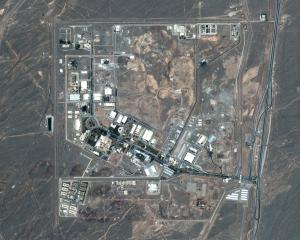I learnt what global convergence meant recently. It's a term I had heard before but hadn't understood until I heard New Zealand businessman, Stephen Jennings, speak at a New Zealand Initiative event.
Do you know who he is? I didn't, and it's sadly indicative of my world that I know more about Naz from The Bachelor than I do about Stephen Jennings.
He was brought up in Taranaki and, after working as an economist in New Zealand, worked in Russia as an investment banker, building multibillion-dollar businesses. He is now the founder and CEO of Rendeavour, an urban development company operating throughout Africa.
Now if, like me, you have never figured out what global convergence means, it's simply that developing countries are catching up with developed countries in terms of productivity and standards of living.
Stephen Jennings spoke about the rise of sub-Saharan Africa, which is made up of 48 countries, of which the six fastest-growing have grown faster than all other countries in the world in the past decade, except for China.
Non-economic indicators are on the up, too. Life expectancy has improved 42% since 2000, and literacy rates among the young now exceed 70% almost everywhere.
Is this all due to aid from the West? Certainly not, according to Mr Jennings, who was pretty scathing about the role international media and aid organisations play in their portrayal of Africa as the "hopeless continent''.
He believes that the big drivers of African economic growth have come through better governance, greater political stability and multi-party democratic systems, and this is benefiting Africa's poorest.
Africa is fascinating from an agricultural perspective. It has half of the world's uncultivated arable land and cereal production is growing massively in certain areas with the use of hybrid seed and fertilisers. From his speech: "according to the United Nations Food and Agriculture Organisation, Rwanda's farmers produced three times more grain in 2014 than in 2000 and seven times more maize. Cereal production in Ethiopia tripled over the same period.''
Of interest, too, women play a key role in African agriculture, contributing 60%-80% of agricultural labour (FAO figures) and the use of mobile technology is widespread, allowing businesses to leapfrog traditional infrastructural requirements.
In fact, Africa now leads the world in mobile banking. The continent also has the youngest population in the world.
New Zealand agri-companies should have the African market on their radar for both technology and food production. There are already Kiwi agri-companies who are successfully footing it there, including Gallagher and an avocado oil company, Olivado.
But, of course, doing business in Africa is not for the faint-hearted and needs good resources and commitment. In Stephen Jennings' words, "don't dream of just dipping your toe in the water - you may not see it again''.
Hardened experience is the only way to learn, and a No8 wire mentality is a real asset - "pragmatic, on the ground doers are needed''. A strong, locally based management team is essential. So, too, is a diversified approach to African countries, to waylay political risk.
Sub-Saharan Africa is expected to have the largest population in the world by 2030. Think about the past five years and how much our agri-markets are changing; China is now a part of our everyday conversations.
It is not unreasonable to believe Africa will be a big part of our future in some shape or form. In Stephen Jennings' words: "We are living through the age of global convergence ... the rise and increasing ascendance of the West, which began with the industrial revolution, is over.''
I have tried to capture the essence of his speech, which was inspiring and thought-provoking, to say the least, but I recommend reading the full transcript, which also includes his insights on the New Zealand economy: http://www.nbr.co.nz/article/raw-data-stephen-jennings-dinner-lecture-ma....
-Anna Campbell is managing director of AbacusBio Ltd, a Dunedin-based agribusiness consulting and new ventures company.











